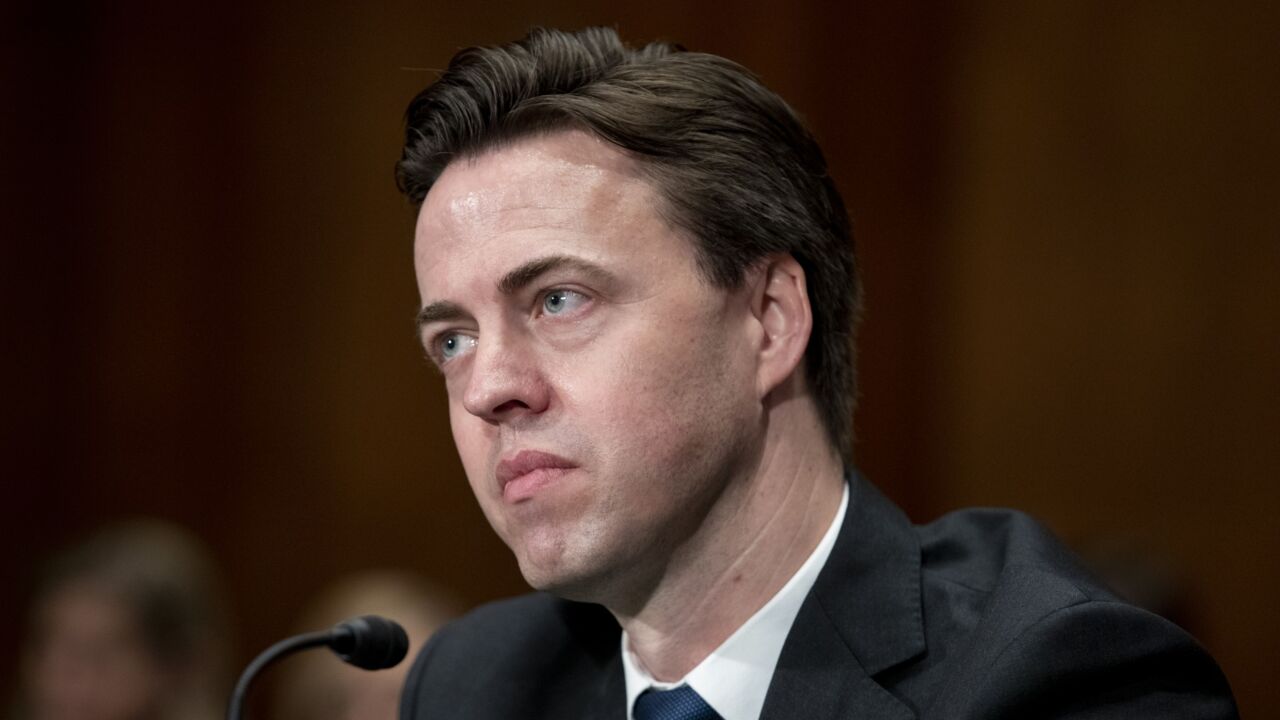-
A white paper released Thursday said the agency might issue new guidance on fintech product development, third-party risk management and new products targeting the underbanked; streamline its licensing procedures; and appoint experts on "responsible innovation." It is still deciding whether to open an office dedicated to monitoring the fintech sector.
March 31 -
Fed up with the hassles of applying for a multitude of state licenses and relying on bank partners, fintech firms are increasingly interested in applying for a national bank charter and federal regulators are considering ways to accommodate them.
May 9 -
Capital continues to flow freely into financial technology ventures, many of which are repositioning themselves as aspiring partners for banks rather than would-be disruptors.
April 21 -
The collaboration between financial institutions and technology firms runs deep, but banks' recent criticism of lax regulatory oversight for nonbanks reveals fissures.
September 25 -
Banks are enthusiastic about innovation that involves both traditional institutions and nonbanks, but a more cohesive regulatory landscape is needed for cooperation between banks and fintech to grow even more.
February 18
The ample investment dollars pouring in to financial technology startups are indication alone of the industry's disruption. Last year,
But for all of the available outside capital bolstering the case that fintech disruption is reshaping financial services, many incumbent financial institutions are still apprehensive about jumping in. Their reluctance is likely due in part to a feeling of competitive disadvantage compared to more tech savvy players, but perhaps an equal if not bigger impediment is the very real issue of regulatory risk if and when banks work with fintech companies.
The regulatory framework dictating how banks can confidently use emerging technologies is not well-defined, leaving banks to have to guess how a regulator will react to their involvement in tech ventures. As a result, financial institutions often remain wary about working with young innovative technology companies even when the resulting benefits may be clear.
This must change. In order for the industry to continue to evolve and remain technologically current with other industries, banks need to be able to pilot and implement relevant technologies with the confidence they are complying with applicable laws and regulations.
There has been progress. In March, I was encouraged when the Office of the Comptroller of the Currency
Yet the OCC should go further. The paper was a promising sign of regulators wanting to get involved, but it was hopefully just the first step in what should be a larger undertaking. For example, although the paper talks about fostering responsible innovation, it doesn't go into much detail about the OCC's role in encouraging vetting of fintech partners. And while the paper calls for meetings between the OCC and key fintech stakeholders, it does not provide guidance on how those meetings should be structured. The paper proposes a centralized office of innovation within the OCC to evaluate certain technologies, but again details were lacking on the specific role that office will play.
As the agency plans its next steps, the exact function of the centralized office deserves particular attention. Such an office could play a pivotal part in improving banks' confidence in working with fintech companies. Establishing a centralized office of innovation is important for three reasons: It will give financial institutions a clear point of contact; it will allow the OCC to better scale its expertise and ability to offer guidance; and it will help bring innovative technologies to market faster.
For a centralized office of innovation to succeed, the OCC has to get it right but it doesn't need to reinvent the wheel. Rather, it should look to other countries that have worked to formalize regulation of innovation efforts and leverage their effective practices. For example, the OCC's innovation office could emulate the U.K. Financial Conduct Authority's
Launched in October 2014, Project Innovate has already authorized five startups to undertake regulator-approved activities, meaning banks can use their technology freely and responsibly. More recently, the U.K. launched a
Project Innovate is transparent, inclusive and action-oriented – all qualities that an innovation center in the U.S. would need to have in order to bring emerging technologies to the market faster.
For now, the OCC's paper is a great first step on the road to providing banks with a guide for implementing new technologies while still remaining compliant. But the industry needs stronger guidance and a clear timeline.
Stuart Frankel is CEO of





